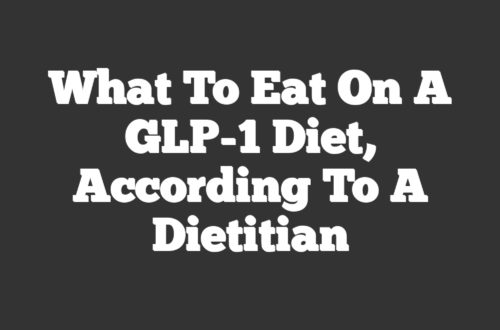
At 30, you may find that losing weight is more challenging than it once was. Your metabolism slows down, and your body undergoes hormonal changes, making it harder to shed those extra pounds. Despite these factors, you can still achieve a healthy weight in your 30s with the right mindset and strategies.
Prioritize Whole Foods
Whole foods should be prioritized in your diet. These foods are nutrient-dense, filling, and can help you maintain a healthy weight. They also contain essential vitamins and minerals that your body needs for optimal functioning.
Stay Hydrated
Water helps flush out toxins from your body and aids in digestion. Drinking water can also curb hunger, preventing overeating. When you are thirsty, replace soda and sugary beverages with water. Always keeping a water bottle with you can remind you to stay hydrated.
Limit Processed Foods
Processed foods are high in unhealthy fats, added sugars, and sodium, contributing to weight gain. They are also typically low in nutrients and high in calories, leading to overeating as your body tries to meet its nutrient needs. Processed foods are also designed to be hyper-palatable, which can trigger overeating.
Incorporate Strength Training
Strength training is crucial for sustaining muscle mass, which can decline with age. As you lose muscle, your metabolism slows down, making it easier to gain weight. Incorporating strength training into your exercise routine helps build and maintain muscle, boosts your metabolism, and helps you burn more calories.
Find an Activity You Enjoy
Staying active is essential for weight loss but mustn’t be boring or feel like a chore. Find activities you enjoy, whether dancing, hiking, or playing a sport. Not only will it make exercising more enjoyable, but you’ll also be more likely to stick with it.
Don’t Skip Meals
Skipping meals might seem an effective way to cut calories, but it can lead to weight gain. When you skip a meal, your body survives by slowing your metabolism and conserving energy. It can also lead to overeating as your body compensates for the missed energy later in the day.
Get Enough Sleep
Adequate sleep is crucial for weight management. Lack of sleep can cause weight gain due to disrupted hunger hormones, increased appetite, and reduced energy for exercise and healthy eating. Prioritizing good sleep hygiene is essential for any weight loss strategy.
Avoid Restrictive Diets
Avoiding restrictive diets is integral to maintaining a healthy relationship with food and achieving sustainable weight loss. These diets eliminate entire food groups and create unrealistic eating habits that are hard to keep in the long run. They may lead to onset weight loss, but the results are temporary.
Avoid Added Sugar
Added sugar contributes to increased calorie intake with no nutritional value, potentially leading to weight gain and chronic diseases. Monitor and limit high-sugar foods and drinks intake, opting for natural sweeteners like fruits and honey in moderation.
Make Your Meals
Cooking your meals at home empowers you to manage ingredients and portion sizes effectively. It allows you to choose high-quality, nutrient-dense foods and limit unhealthy additives and extra calories from dining out. Experiment with varying recipes and flavors to keep things exciting and make healthy eating enjoyable.
Eat Slowly
When you eat slowly, you give your brain enough time to receive signals from your stomach that it’s full, helping to prevent overeating. Taking your time to chew thoroughly also aids digestion and enhances the absorption of nutrients.
Eat Probiotic Foods
Probiotic foods, rich in beneficial bacteria, are essential for gut health. They promote digestion, enhance the immune system, and manage weight. Yogurt, sauerkraut, kimchi, and other fermented items are excellent sources. Consult a healthcare professional before adding them to your diet, especially if you have specific health conditions.
Don’t Skip Breakfast
Starting your day with breakfast jump-starts your metabolism and provides the energy needed to kick off the day. Skipping breakfast can increase hunger later in the day, potentially leading to overeating or unhealthy food choices.
Keep a Gratitude Journal
Maintaining a gratitude journal as part of your wellness routine can contribute to weight management indirectly. Journaling about things you are grateful for helps reduce stress and foster a positive mindset. Elevated stress levels can lead to unhealthy or “emotional eating.”
Eat Prunes
Prunes are a great addition to a weight loss strategy. They are high in fiber and help keep you full, reducing the tendency to overeat. They also contain sorbitol, a type of sugar alcohol that has a laxative effect and promotes regular bowel movements.
Eat the Right Breakfast
Eating the proper breakfast sets the tone for the rest of your day. Choose nutrient-dense foods that offer sustained energy and keep you full until your next meal. A balanced breakfast should contain quality protein, complex carbohydrates, and healthy fats.
Eat Good Fats
Good fats, such as monounsaturated and polyunsaturated fats, provide essential fatty acids, promote satiety, and reduce the risk of heart disease. Avocados, nuts, seeds, olive oil, and fatty fish like salmon are excellent sources of good fats.
Avoid Alcohol
Alcohol is high in calories and can stimulate appetite, leading to overconsumption of food. When you drink alcohol, your body prioritizes metabolizing it over other nutrients, potentially leading to fat storage. When you indulge, choose lower-calorie options like a glass of wine.
Use Smaller Plates
Using smaller plates is a practical approach to managing portion sizes. People consume less when food is served on smaller plates as it gives the illusion of more food. This simple change can help you eat less without feeling deprived, supporting your weight loss efforts.
Seek Support
Building a supportive community around you can boost motivation and help you stay accountable for your weight loss goals. Explore joining a support group or seeking professional guidance to create personalized strategies for success.
More From Health Makes You
Losing weight can be difficult, and many try extreme methods to achieve quick results. Unfortunately, some of these methods can be unhealthy or even dangerous. From crash dieting to skipping meals, here is a list of the 25 worst ways to lose weight that you should avoid.
25 Worst Ways to Lose Weight
15 Best Dinner Foods That Can Help You Reach Your Weight Loss Goals
Eating the right foods can help you shed those extra pounds. The key is to ensure that the food you eat is packed with nutrients and low in calories, and we’ve compiled this list of the best dinner foods for weight loss.
15 Best Dinner Foods that Can Help You Reach Your Weight Loss Goals
20 Reasons You Are Just Not Losing Weight Despite Your Best Efforts
Despite spending countless hours at the gym and following strict diets, you may still struggle to shed those extra pounds. What could be the reason? Here are 20 possible explanations why weight loss may happen slower than expected.
20 Reasons You Are Just Not Losing Weight Despite Your Best Efforts
15 Things Doctors Wish You Knew About Losing Weight
One major factor that stops people from seeing desired changes in their weight loss journey, despite their healthy lifestyle choices, is following outdated advice or making wrong choices. Here are 15 things that doctors wish you knew about losing weight.
15 Things Doctors Wish You Knew About Losing Weight
10 Foods That Could Be Preventing You From Losing Weight
Embarking on a weight loss journey can be challenging as it requires discipline, commitment, and an understanding of how foods affect your body. Not all foods are good for you; some nestle into your daily diet, like silent saboteurs, hindering your results.
This article unmasks foods that secretly prevent you from achieving your weight loss goals, which is why the needle on your scale refuses to budge despite your best efforts.
10 Foods That Could Be Preventing You From Losing Weight
This article was produced on Health Makes You.




